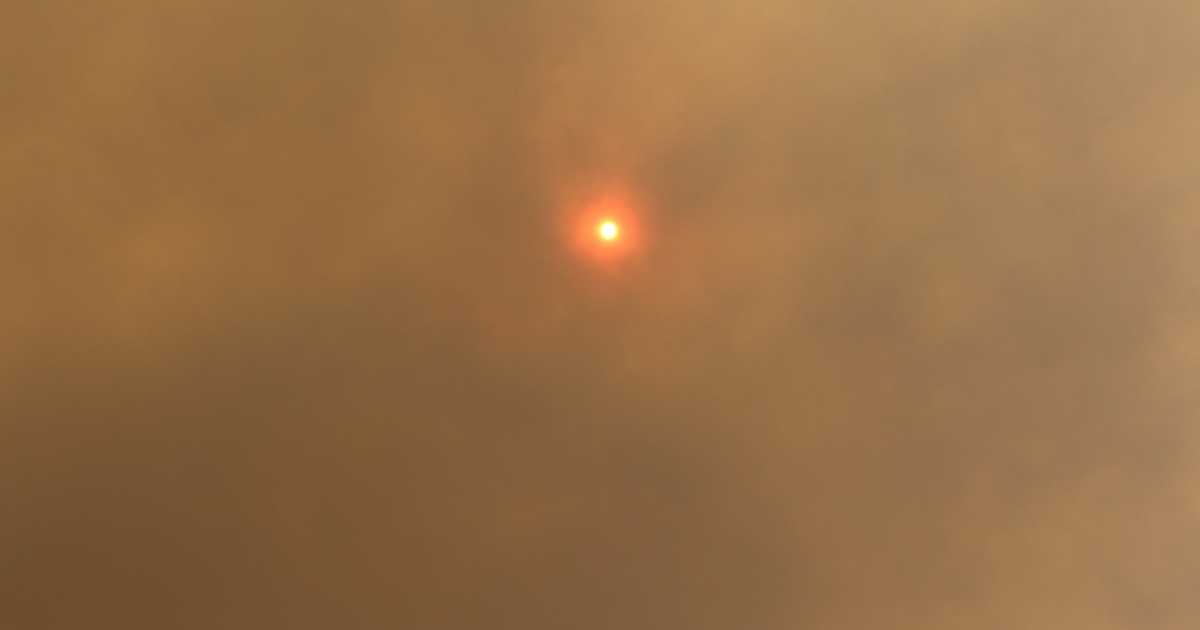A solar monitoring company has found output from rooftop solar panel systems in Sydney and Canberra was significantly impacted on recent heavy bushfire smoke haze days.
The firm, Solar Analytics, monitors energy consumption and performance of solar power systems situated at 35,000 sites across Australia. The company reported on Monday that on New Year’s Day, rooftop PV output in Canberra dropped by 45%. On December 10 in Sydney there was a 15% drop in production, rising to 27% reduction on December 21.
Canberra and Sydney were by no means alone; nor were impacts confined to just those few days.
“If you’ve had very poor air quality at your solar PV site, you can assume it has impacted your solar production,” says Solar Analytics.
With The Smoke – Ash
Even once skies have cleared, impact of the fires may still be felt by solar power system owners – including those a long distance away from fire areas. Many across the country will be finding their solar panels have a layer of ash; the thickness of which varies depending on proximity to the fires and prevailing winds.
SQ’s Ronald mentioned earlier this week that while ash from the bushfires may reduce the output of your solar power system, it won’t do any harm assuming what was falling wasn’t hot ash or embers – and rain should wash it off. His article – Solar Power And Bushfires: Safety, Shutdowns And Cleaning Off Soot – is well worth a read.
The loss of some solar energy output through smoke and ash is annoying and costly to system owners, but a comparatively minor thing compared to the challenges faced by many Australians directly impacted by the bushfire crisis. And we still haven’t wrapped our heads around what the ongoing wider impacts will be – such as those from subsequent deaths from bushfire smoke, the loss of an estimated billion animals and hundreds of billions of insects, and, and, and, and.
General Air Pollution A Problem For Solar PV
While the high level of air pollution generated from Australia’s current bushfires will at some point dissipate (but hopefully not the lessons learned), in other parts of the world heavy air pollution is an ongoing problem – for the environment, human health and for solar PV.
Back in 2017, we reported on a study out of Duke University that found dust and particulate matter may be reducing the energy yield of solar panels installed in north India by as much as 17% – 25 % annually. A similar impact was observed in parts of China in a separate study.
In both those cases, a major contributor to the pollution is the burning of fossil fuels including coal used for electricity generation – some of it from Australia. The impact on solar PV means more electricity needs to be generated from other sources, including coal fired power stations.


 RSS - Posts
RSS - Posts



I’m in Canberra and received a message from our system because production was down based on forecasts. I compared this January to the same time last year and it’s down 25%. I’m in Canberra.
Did you get impacted by the hail storm on Monday. Everyone in our street lost their panels. After a mid street conference over a couple of beers yesterday it looks like not everyone included the installation in their insurance policies. There are some important lessons out of this event.
Our solar evacuated tubes got 10 of the 30 tubes smashed. We had pools of water in two rooms but amazingly our 24 panels are all good. Hopefully as a result of buying good REC panels. We have panels facing east and west too.
You really have to add your panels to your insurance policy?
I have just undertaken [Jan 12-13] an inspection of a number of Solar VFD Bore Pump Systems and Off Grid Systems we have installed in the Canberra and NSW South Coast and Highlands areas affected by the bushfires and the lingering smoke has on average reduced Solar PV performance to about 10 – 20% of expected performance standards.
This is temporary of course and will be immediately remedied with a couple of days of decent rain in these affected areas.
Lawrence Coomber